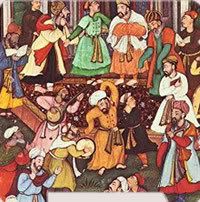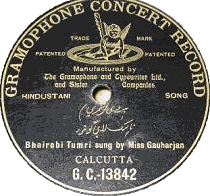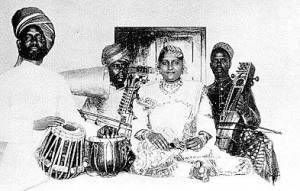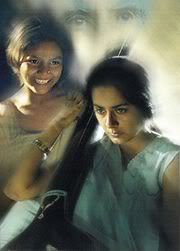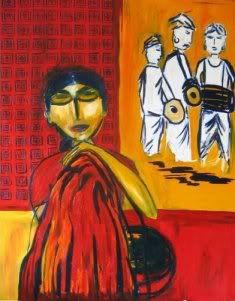
There is an evident cross fertilisation between the two musical forms, with both taking from, and responding to the other. The Indian film music industry has a strong influence on popular Indian culture and while it has shaped public preferences, it has also borrowed from classical music forms. One common belief about street musicians is of them being too lazy to get a 'real' job, harassing people on the streets with 'inferior' or 'crude' acts to solicit money to support a degenerate lifestyle. This perception is not confined to this part of the world only.
Bhajan from Benares : (Download)
Tribal Song from Rajasthan : (Download)
Nautanki Song from Kanpur : (Download)
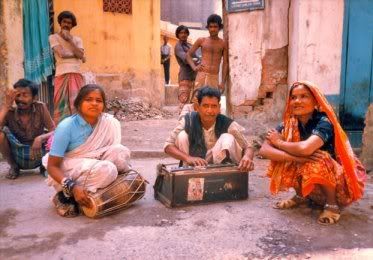
Street music is perceived as a 'lesser' performing art, an illegitimate musical form. However, it continues to endure this viewpoint, surviving elitist ideas of 'high' art. Moreover, street music is being increasingly absorbed into mainstream musical forms but without recognition. Lack of recognition of this art form, deprive the artists of social and economic benefits that are rightfully theirs.
Jogi Song from Gujarat : (Download)
Bhajan from Orissa : (Download)
Baul Song from Bengal : (Download)
Beggar's Song in a Street : (Download)
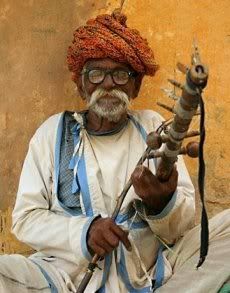
The homespun, creative and intelligent construction of musical instruments made by the artists themselves, mirror the many dimensions of the artist. Streets and their culture lie at the heart of public life in contemporary India, especially in cities where urban housing is crowded and uncomfortable. Its streets act as thoroughfares, bazaars, theatres and most of all, a setting whose culture is constantly changing and evolving with time.
Comments are welcome.
